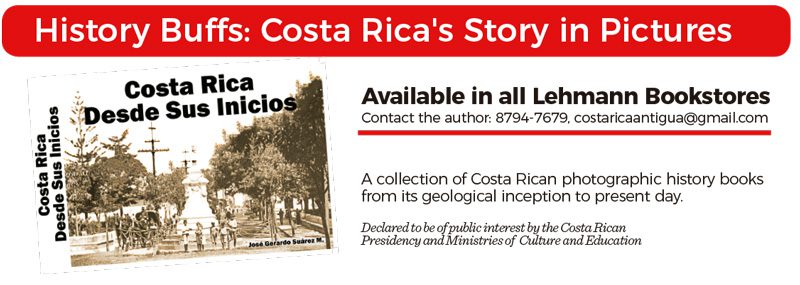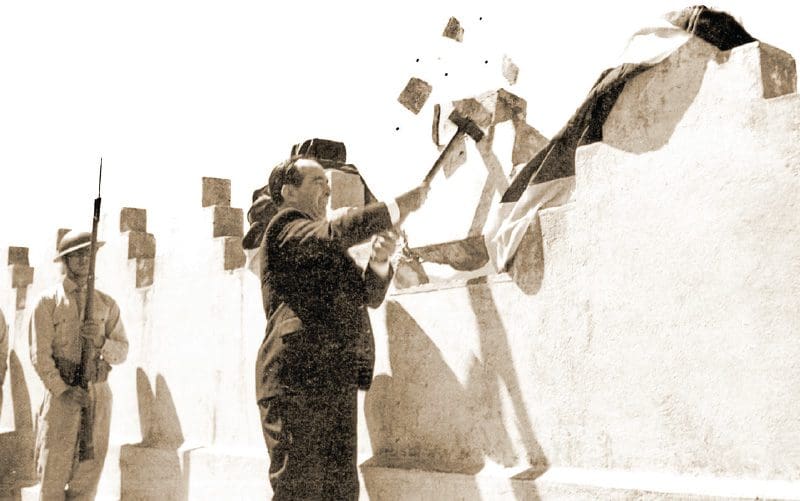
Costa Rican Army Abolished: History in Photos

Costa Rican Army Abolished: The Costa Rican army was abolished by President José Figueres in December 1948 after a civil war that lasted 44 days and claimed some 2,000 lives.
President Rafael Ángel Calderón (1940-44) dominated Costa Rican politics for much of the 1940s. The constitution did not allow a president to be elected to consecutive terms, and so in 1944 Calderón loyalists elected Teodoro Picado, who was seen by the opposition as a puppet.
In 1948, Calderón ran for president again, and according to official results was defeated by opposition figure Otilio Ulate in an election plagued by violence and chaos. Calderón petitioned the National Assembly, dominated by members of his party, to annul the results because of electoral fraud, which it did.
Figueres, a longtime political activist who had been preparing for war, launched an insurrection against the Picado-Calderón government and quickly prevailed. Figueres became president, and his most famous act upon taking power was to abolish the Costa Rican army. From that day forward, the country has never experienced significant political violence.
Feature image above caption: On Dec. 1, 1948, José Figueres takes a sledgehammer to the turrets of the Bellavista Barracks. With this symbolic act, he decreed the abolition of the army and set the stage for the transfer and remodeling of the old barracks to be converted into Costa Rica’s National Museum.
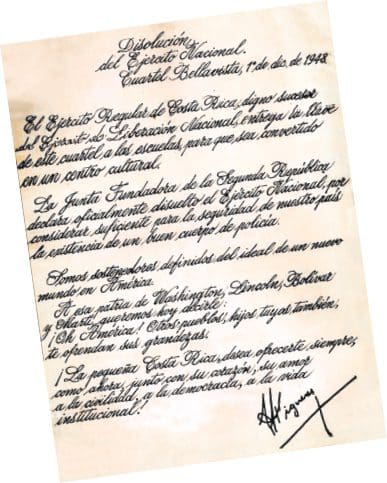
Photo above caption: This decree, “Dissolution of the National Army,” was signed Dec. 1, 1948, at the Bellavista Barracks by José Figueres. It says, in part: “The National Army of Costa Rica, the worthy successor of the National Liberation Army, delivers the key to this barracks to the schools, so that it can be converted into a cultural center.
“The Founding Junta of the Second Republic officially declares the National Army dissolved, having considered sufficient for the security of our country the existence of a good police force.”
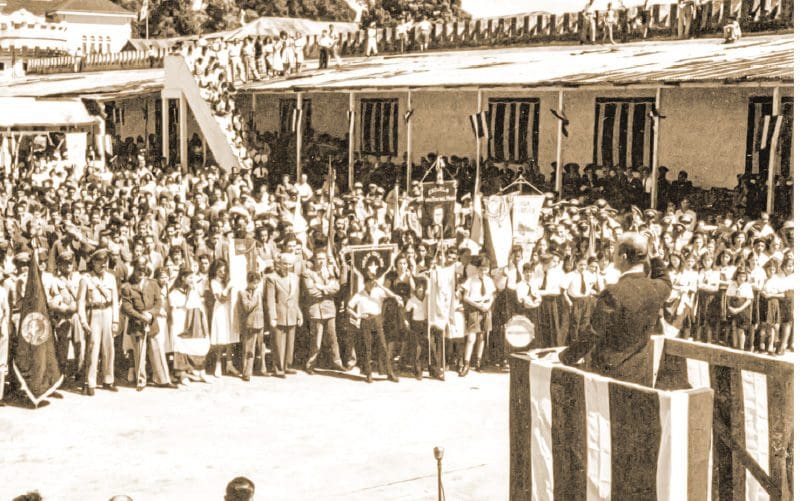
Photo above caption: José Figueres delivers a speech, Dec. 1, 1948, “I took a sledgehammer to the wall atop the Bellavista Barracks, symbolizing the elimination of the remnants of the Military Spirit of Costa Rica of another era, and I delivered these installations to become a Museum of Anthropology that to this day is radiating culture.”

Photo above caption: José Figueres became president when his rebel army won Costa Rica civil war in 1948 against soldiers loyal to President Teodoro Picado and his mentor, Rafael Ángel Calderón. Figueres, who appears on Costa Rica’s 10,000-colón bill today, went on to serve as president in 1948-49, 1953-58 and 1970-74.
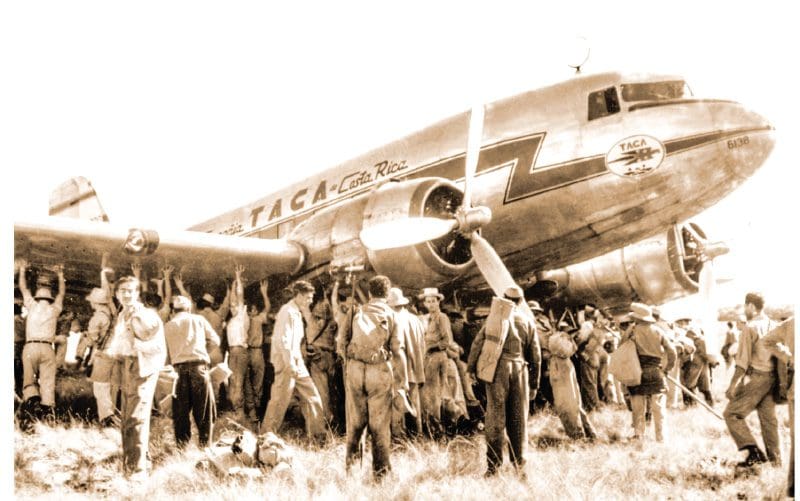
Photo above caption: Soldiers at a landing field in San Isidro airfield, called San Isidro de El General. These planes were used to transport soldiers loyal to José Figueres to San José and elsewhere. This was one of the planes that launched an unsuccessful attack on the Presidential House on March 31, 1948. San Isidro de El General was the place where the biggest and bloodiest attacks and bombardments took place, and also the place with the greatest loss of life.
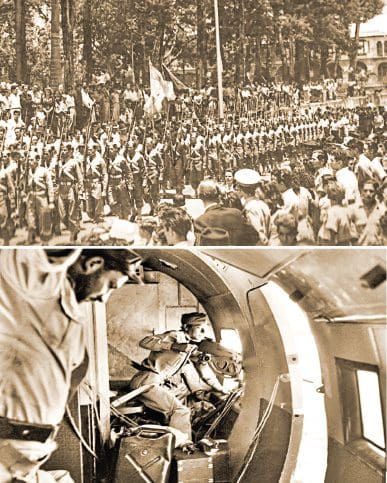
Photo above top caption: The army of the Teodoro Picado government in 1948, in front of the Presidential House.
Photo above bottom caption: DC-3 planes from Costa Rican companies were converted into warplanes by loyalists of both Calderón and Figueres, installing machine guns and removing doors to drop bombs.
